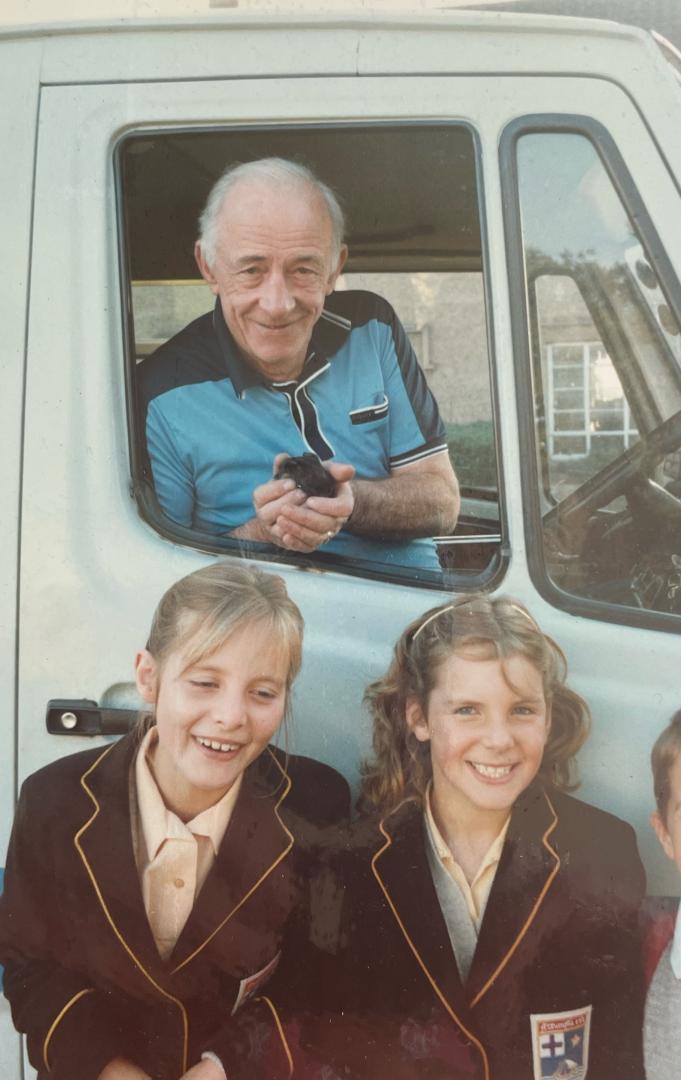Sparked by last month’s 80th anniversary of D-Day, Mary Stastny recalls a Barnard Castle man, Ronald ‘Ronnie’ Henderson and found the Imperial War Museum had recorded his memoir. It makes for fascinating, if uneasy, listening…
On the 80th anniversary of D-Day, June 6, 2024, our daughter told her 12-year-old son about his great grandfather who had landed in his tank on Gold beach.
She went on to tell him about Ronnie Henderson, a Barney man who used to drive her to school, who in 1944 had been the first to land on Sword beach with the 13th/18th Hussars in his amphibious DD tank, having just swum it 3km, from the landing craft to the Normandy coast.
We knew Ronnie mainly as our girls’ minibus driver and as the conductor of Barnard Castle Band. He used to regale his young passengers with stories from his army days, and he taught our daughter to play the cornet.
After she had done a bit of googling, the name of Ronald Henderson, appeared on the Imperial War Museum website. They have collected many hours of audio-taped history from Second World War veterans.
Ronnie’s audio memoirs, which are available at iwm.org.uk, come in 25 episodes of half an hour each. It sounds a lot, but there is never a dull moment because he is a master storyteller, and when his tales as well as D-Day include the battle for Falaise Gap, Market Garden, and the Battle of the Bulge from the point of view of a tank driver, then anyone with an interest in this period of history will soon be hooked.
Ronnie has quite strong opinions about the Americans, the RAF, the church, and the French resistance, amongst many others.
Every day, he and many like him, expected to die; after all, they left a trail of dead friends behind them as they advanced through France, Belgium, Holland and Germany. His admiration for the infantry knew no bounds: “I couldn’t have done what they did, facing death like that: at least we were dry in our tank and had a bit of cover.”
He and his fellow Hussars had a great respect for their equivalent in the German army: “They were only following orders, like us.”
If they found a wounded German they made him comfortable with a blanket and some cigarettes before moving on.
It’s not easy listening and it’s not for the squeamish.
Ronnie had to deal with some horrific sights and situations which haunted him for many years afterwards. He said it was their faces that came back to him.
After the war he spent time at Spandau prison, guarding the German prisoners, and then his regiment was sent to the concentration camp at Belsen.
“They didn’t look like human beings, they were just like skeletons covered with skin and our job was to carry them to the ambulances… the ones that were still alive that is.”
Bulldozers were digging huge pits for the dead and German prisoners of war were forced to carry the dead to these mass graves.
He says his toughest time was during the winter of 1944/45 when they were in the Reichswald Forest. This period will be familiar to anyone who has watched Band of Brothers and the Battle of the Bulge. It was not so much the fighting that got to him, as the snow and the bitter cold.
Ronnie was born in 1924, and was brought up by his grandparents at 1 Balliol Street, Barnard Castle. His grandfather who was a strict Scottish Presbyterian worked in a woollen mill as a heckler for £1 7s 9d. Every Sunday they had a roast, but his grandmother was not allowed to do the washing up until Monday.
They had no bathroom or hot water but they had a range in the kitchen. Upstairs, there was one bedroom and a small cupboard, “but it was cosy” . Every Saturday evening, his grandfather put Ronnie in a little barrow, and took him down the town to pay his dues to the Sick Club, and then wheeled him back home: “He thought the world of me!”
Ronnie remembers playing marbles out on the street and playing in Flatts Woods. A curfew bell used to ring every evening at 8 o’clock for five minutes and as soon as they heard it, they all made their way home. When it was wet, he did a lot of reading and painting and jigsaws, which he bought from Woolworths for 6d.
Ronnie had an extraordinary memory for detail; he remembers the church taking lots of disadvantaged children from the town on the train from Barnard Castle Station all the way to Redcar. They were all given 8d to spend and at 4 o’clock they had to meet at the Britannia Hotel where they were given a drink and a charity bun.
In June 2004, in spite of his ill health, Ronnie travelled to Normandy with his son Alan for the 60th anniversary of D-Day.
They drove through villages, which Ronnie and his regiment had helped to liberate, and he was delighted with the warm welcome he and the other men got from the French people. He died in October later that year.
His obituary in The Northern Echo quotes Alan saying: “Ronnie had a wonderful time.”






